CALL FOR SESSIONS: BABEL 2014 Santa Barbara
3rd Biennial Meeting of
the BABEL Working Group
~ON THE BEACH~
16-18 October 2014
University of California, Santa Barbara
Call for Sessions
Someone is living on this beach. ~David Markson, Wittgenstein’s Mistress
Whenever I find myself growing grim about the mouth; whenever it is a damp, drizzly November in my soul; whenever I find myself involuntarily pausing before coffin warehouses, and bringing up the rear of every funeral I meet; and especially whenever my hypos get such an upper hand of me, that it requires a strong moral principle to prevent me from deliberately stepping into the street, and methodically knocking people’s hats off—then, I account it high time to get to sea as soon as I can. ~Herman Melville, Moby Dick
BABEL’s 3rd Biennial Meeting situates itself along the fractal shoreline of the Pacific Ocean in Santa Barbara, a town named after the patron saint of miners, artillerymen, explosives, and lightning. In the spirit of such rogue-ish and transitory confraternities of pirates, smugglers, saints, pyro-artists, rebels, and surfers, and following in the spectral footsteps of the after-party stragglers and wastrels of La Dolce Vitastumbling into the early morning light of a bleached-out Fellini-esque seascape, where they are caught by the gaze of a dead stingray snared in a fishing net, we will gather on the beach to explore together the question of what it means to be stranded and how the beach itself (writ large as Beach) might serve as a new Academy of Thought, where thinking would emerge from lively (if also messy and uneasy) collaborations between whales, surfers, clouds, waves, starfish, grains of sand, swimmers, lagoons, saints, coral, marshes, divers, dunes, skiffs, ports, sharks, etc. Our aim will not be to find a site of clear demarcation between water and earth, shore and sea, sand and sun, inside and outside, sky and cloud, human and nonhuman, past and future, University and Real World, work-time and play-time. Rather, we will seek to cohabit a turbulent site of entangled encounter, of weathering and advancing into the weather: a place of “formal inexhaustibility” where trans-corporeal bodies flow into and collide with each other, caught within and moving along eddies of emergence, erosion, and what Vicki Kirby calls “life at large” (“there is no outside of Nature”). At the same time, we will note that we are outside and we will ask what it means to be outside, exposed to the elements and the elemental, to think but also to feel a beachy Outside.
“On the beach” marks the place where life first emerged and may emerge again (the beginning), where Alfred Russel Wallace gathered his specimens (in the Malay archipelago) and Darwin counted his finches, iguanas, and tortoises (in the Galapagos Islands) — the beach as site of natality, life, and biological diversity. But “on the beach” also marks the place where Nevil Shute set his 1957 post-apocalyptic novel of the same name, and thus denotes where we all gather after the end. This is the place, then, of evolutionary becomings andthe post-catastrophe (monsoons, hurricanes, landslides, tsunamis, floods, mushroom clouds, oil spills, napalm strikes, sewage runoff, and other in/human and enviro-disasters). “On the beach” will thus designate for us a precarious oikos (a shelter, but also a site of exposure), where we can glimpse beginnings and ends, as well as hetero-chronic temporalities meeting in lightning strikes of inventive, destructive, and evolutionary event-fulness. The beach shows the world and its beings in constant turning, where we experience the viro (“to turn”) of environment-in-motion, and recognize our fragile positions in these shifting, and drifting, sands of an oceanic past-present-future. On the beach: to be always-intermediate and also trans-mediate, to turn and to be turned. Between terra and hydro.
As oceans and beaches have also marked the spaces of exploration, pilgrimage, migration, mission, invasion, and occupation, as well as where one holds the line against intrusions of various kinds, we want to consider the ways in which being on the beach involves overlapping histories of territorialization and de-territorialization, of aggressive incursions and displacements and reclamations, of continual embassies and cross-cultural traffic, exchange and clash, of bunkers and signal fires, of war rallies but also shore leave, of the menacing flotilla as well as the lonely skiff lost at sea. What contests are staged on beaches and who or what determines who or what owns the beach and the oceanic waterways? What are the “goods” and “resources” of oceans and beaches, who lays claim to them, and how are these claims contested over time? What does it mean to wash up on the beach, as saint, humanist, missionary, explorer, ambassador, or conquistador (or any combination thereof)? What happens when one lands on the beach by accidental misfortune, where the beach becomes the scene of the missing and the stranded? What does it mean to be abandoned on the beach, to be the shipwrecked castaway cut off from everyone and everything with no way home, where the beach itself, as well as the ocean, becomes (or appears through the human-centric lens as) a site of a-social in-hospitality?
To be on the beach is also to engage in active (and willfully passive) acts of rest and play and revelry, of taking off, getting and hiding away, shoring up and soaking it up, idling and lolling and lying down, blankets and bonfires and surfboards: a fugitive and sun-bleached holiday inter-zone that refuses the workaday and the so-called real world in favor of vacating, of not doing, not thinking, and instead, becoming-laze, becoming-haze. This beach is where you go to lose your mind and to reorient your senses, re-timing them to the pulse of waves and rolling skyscapes; it’s where you get horizontal and temporarily leave verticality behind, allowing yourself to sink into the sand and engage in salt-and-brine devolvings. This is a place of longing (for going somewhere else, for new horizons, but also for the blankness of oblivion), which is also the site of “ruinous inward passions” (Thomas Mann’s Death in Venice), the magic of Circe, the lotus-eaters, and the southerly sirocco that carries with it the red dust of disturbing dreams and delusions. But all of this also raises the questions: who gets to enjoy or get lost or go mad on this beach, and who is cordoned off from these scenes and modes of idling and vacating? Who is unable to participate, or is sequestered at a short distance in order to help maintain these beaches in the low-wage zones of leisure service industries? What are the darker costs of tourism?
For its 3rd biennial meeting, BABEL proposes we comb the beach — not to straighten out, nor even to mine, but to entangle while also pondering. To “ponder”: this word captures the “weight” (from pondus) of the earth-water encounter: to ponder is to go ponding and fall into lagoons/lacunae where all the cities are sinking together. So you find yourself in (or is it on?) one of several strands, a word that defines the beach as both a place and a process, as well as the zone of the tangent and the outlier, a shoreline of navigable routes and an unfurling network that creates new threads and lines to follow — threads and lines, moreover, that are not, in the words of Tim Ingold, “connections” nor “relations between one thing and another. Rather, they are lines along which things continually come into being . . . . not a network of connections but a meshwork of interwoven lines of growth and movement.”
On the beach, the site of beginnings and ends, of distinct forms of indistinctness, where the ground is always moving under our feet and the horizon is always vanishing, is where we might turn to certain questions, problems, opportunities, and dangers that cycle around the ecological and the institutional, and all the ways in which the two are entangled. Near the beach at the University of California in Santa Barbara is an important site of mixture: the lagoon, a space that refuses neat epistemological and ontological lines, that welcomes co-minglings between disparate things. The Santa Barbara lagoon is a “new world” representative of European colonization — a new (sinking) Venice — but it is also a force of deterritorialization. How might being on the beach cause us to be more mindful of these always mobile and ever shifting enmeshments as well as of our shared (precarious and vulnerable) creatureliness with land, water, weather, atmosphere (which could be global warming, the shrinking job market, the de-funding of the humanities), and other animate beings? How to move forward, even if that means, as Steve Mentz has urged (At the Bottom of Shakespeare’s Ocean), cultivating shipwrecks instead of gardens?
As with all BABEL endeavors, we invite creative proposals for sessions from all academic fields and sites of para-academic work, art and play that have lingered by the water and on the beach, and we are especially interested in seeing proposals from areas that already have their feet wet and their heads in the clouds: trans-maritime studies, maritime history, climatology/meteorology, coastal geography/geology, oceanic cultural studies, marine science, environmental humanities, surfing studies, cultural anthropology, post-colonial studies, island studies, conservation biology, sustainability studies, maritime archaeology, sea politics and economics, pirate studies, evolutionary biology, landscape art and architecture, oceanography, terra-engineering, geo-poetics, ecology studies, geo-philosophy, and the like.
Proposals that address/play with any of the keywords listed below are especially welcome, as are proposals that might connect one or more of the keywords to one or more of the larger themes with which BABEL is always concerned (also see below). PLEASE KEEP IN MIND that there will be NO 90-minute sessions at BABEL’s 2014 Biennale, so we ask that you not submit proposals for conventional sessions featuring 3-4 (or even 4-6) traditionally-styled papers. At present, we are envisioning 60-minute sessions, and you should submit proposals accordingly. Think about sessions in the form of: working group, demonstration, performance, collision course, dramatic reading, thought-experiment, dialogue, debate, seminar (with papers circulated in advance), drinking game, diatribe, testimony, flash mob (or other type of flash-event), roundtable discussion, complaint, drawing-room comedy, speculation, gymnasium, protest, clinical trial, séance, laboratory, masque, exhibition, recording session, screening, potlatch, cabinet, slam, etc. You can, of course, have a session where you might have anywhere from 5 or more persons presenting research/ideas/writing relative to a specific topic or question, but the amount of time allotted to each speaker would have to be 10 minutes or less. Whether or not time for discussion is built in, is entirely up to you. The conference will be designed to allow for maximum conversation and dialogue time before, between, and after sessions.
KEYWORDS: Beach/Ocean, Lagoon/Lake/Lacuna, Drift/Shift, Flow/Scape, Sink/Drown, Submerge/Emerge, Party/Revelry, Piracy/Smuggling, Wave/Surf, Marine/Marina, Pacific/Peace, Sun/Burn, Sand/Micro, Swim/Sail, Fireworks/Lightning, Coast/Edge, Storm/Wreck, Holiday/Play, Atoll/Reef, Tide/Undertow, Sky/Cloud, Marsh/Reed, Shelter/Umbrella, Shore/Strand, Island/Archipelago, Jetty/Barrier, Harbor/Refuge, Amphibious/Aquatic, Flotsam/Detritus, Lighthouse/Patrol, Theft/Reclamation, Net/Buoy, Submarine/Wetware, Weather/Atmosphere, Migration/Invasion, Hospitality/Mission, Float/Ballast, Holy Water/Healing, Ambassador/Spy, Port/Navigation, Salt/Trade, Erosion/Bank, Territory/Bridge, Abduction/Impressment, Dive/Surface, Raft/Castaway
THEMES: Thriving, Precariousness, Affinity, Friendship, Dissent, History, Temporality, Post/humanism, Materialism, Life, Ecology, Decolonization, Unlearning, Trans/Disciplinarity, Institutionality, Collaboration, Play/Enjoyment, Speculation, Retro-Futurism, Publics/Publication, University in Ruins, Post-Catastrophe
Session Proposals of approx. 350-500 words (which can be completely open and/or already include some or all committed participants), to include full contact information for organizer(s) and any committed participants, should be sent, NO LATER THAN JUNE 10th, to: babel.conference@gmail.com.
BABEL Planning Committee: Liza Blake (University of Toronto), Jen Boyle (Coastal Carolina University), Brantley L. Bryant (Sonoma State University), Jeffrey Jerome Cohen (George Washington University), Lowell Duckert (West Virginia University), David Hadbawnik (University at Buffalo, SUNY), Lara Farina (West Virginia University), Laurie A. Finke (Kenyon College), Brianna Jewell (University of Texas-Austin), Eileen A. Joy (BABEL Working Group), Kathleen Kelly (Northeastern University), Anna Klosowska (Miami University), Jacques Lezra (New York University), Nedda Mehdizadeh (George Washington University), J. Allan Mitchell (University of Victoria), Asa Simon Mittman (California State University, Chico), Christine Neufeld (Eastern Michigan University), Michael O’Rourke (Independent Colleges, Dublin), Karen Eileen Overbey (Tufts University), Daniel C. Remein (New York University), Dan Rudmann (University of Texas-Austin), Myra Seaman (College of Charleston), Martin B. Shichtman (Eastern Michigan University), Karl Steel (Brooklyn College), Christopher Taylor (University of Texas-Austin), Stephanie Trigg (University of Melbourne), and Maggie Williams (William Paterson University).
UC Santa Barbara Planning Committee: Nicole Archambeau, Heather Blurton, Maurizia Boscagli, Julie Carlson, Jeremy Douglass, Aranye Fradenburg, Jonathan Forbes, Jamie Friedman (Westmont College), Bishnupriya Ghosh, James Kearney, Rachel Levinson-Emley, Paul Megna, Shannon Meyer, Megan Palmer-Browne, Constance Penley, Jordan Rainone, Teresa Shewry, and Kathyrn Wilcox.
*Images from Joni Sternbach, SurfLand


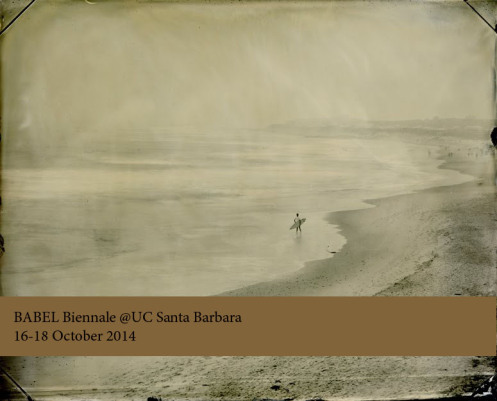
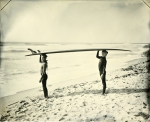
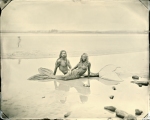

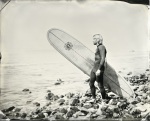
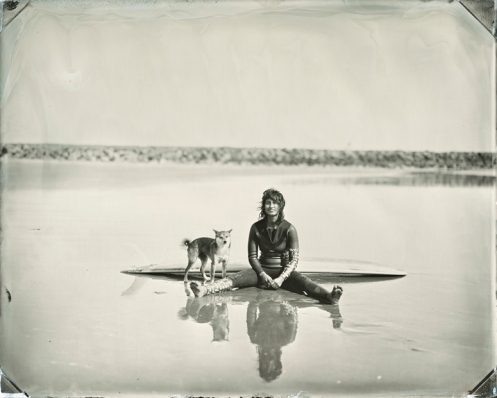
![Tower of Babel [Brueghel]](http://babelmeeting.files.wordpress.com/2012/01/babel3.jpg?w=150&h=113)

